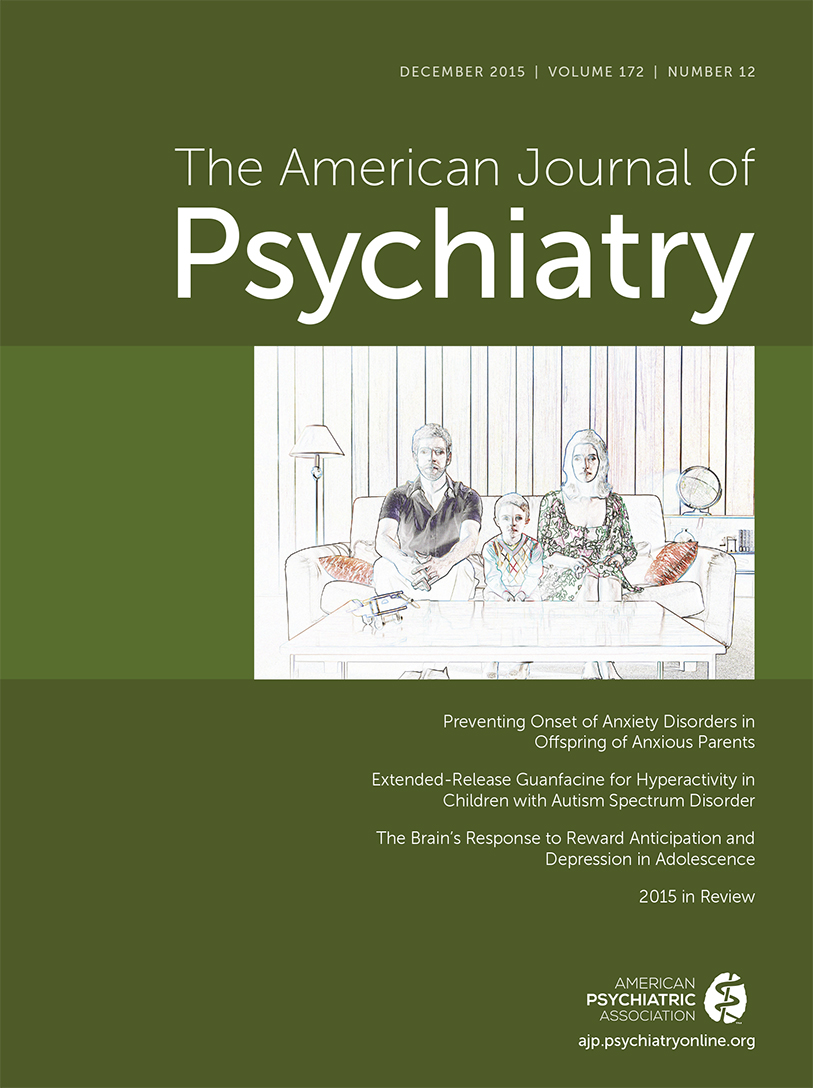Cognition and Plasma Ratio of Clozapine to N-desmethylclozapine in Patients With Clozapine-Resistant Schizophrenia
To the Editor: The report of Tarek K. Rajji et al. (1), published in the June 2015 issue of the Journal, indicated that the plasma ratio of clozapine to N-desmethylclozapine (NDMC) was negatively and specifically associated with working memory function in patients with schizophrenia (N=30). Judging by the relatively low mean total score of 53.7 (range 35–73) on the Positive and Negative Syndrome Scale (PANSS), this appeared to be a group of clozapine-responsive patients (2). We attempted to confirm and extend this finding using available baseline data from a previous randomized controlled trial of patients with clozapine-resistant illness (N=54) (3). In this earlier study, patients were required to be treated for at least 12 weeks (median=84 weeks) with a stable dose of clozapine (≥400 mg/day, unless limited by side effects; median=500 mg/day) prior to testing; as expected, these patients had a much higher mean PANSS total score of 99.5 (range 75–123). Patients were not taking any psychotropic medication except for clozapine. The study included one test of working memory (letter-number sequencing) that was the same and one test that was different (the Brown-Peterson test) from those reported by Rajji et al. We used the same statistical approach, with both tests contributing to a composite assessment of working memory as the dependent variable, and with age, gender, education, total PANSS score, and plasma clozapine/NDMC ratio as simultaneously entered independent variables. The overall model regressing the composite score on all independent variables showed an R2 of 19.6, p=0.056, yet the clozapine/NDMC contribution was weak: β=−0.117, p=0.384. Separate examination of the two contributing tests also failed to confirm an effect of the clozapine/NDMC ratio. In addition, exploratory analyses failed to detect significant associations between the clozapine/NDMC ratio, cognitive domains from the Repeatable Battery for the Assessment of Neuropsychological Status (immediate memory, visuospatial/constructional, language, attention, and delayed memory), or verbal fluency. The failure to confirm the findings of Rajji et al. could be due to insensitivity of cognition in seriously ill patients to subtle variation in occupancy of multiple neuroreceptors by clozapine and NDMC. However, the addition of risperidone to clozapine in our study was associated with deterioration in working memory function, suggesting that plasticity in working memory was present at baseline even in these severely ill patients (3). Much larger studies than the two discussed here, in a wide range of patients with clozapine-responsive and with clozapine-resistant forms of illness (2), are needed to draw more definitive conclusions about the cognitive effects of clozapine, NDMC, and the plasma ratio of these two compounds.
1 : Prediction of working memory performance in schizophrenia by plasma ratio of clozapine to N-desmethylclozapine. Am J Psychiatry 2015; 172:579–585Link, Google Scholar
2 : Using treatment response to subtype schizophrenia: proposal for a new paradigm in classification. Schizophr Bull 2013; 39:1169–1172Crossref, Medline, Google Scholar
3 : Clozapine alone versus clozapine and risperidone with refractory schizophrenia. N Engl J Med 2006; 354:472–482Crossref, Medline, Google Scholar



